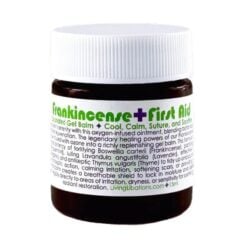Beauty Tips, Nadine Artemis (Living Libations)
De voordelen van zonlicht omarmen
The sun, a celestial wonder, graces all things green, guiding the growth of flora and fauna. Its life-giving rays penetrate the earth to sustain soil life, and the same rays permeate our skin and bones, fostering health and vitality.
The Importance of Sunlight for Our Bodies
Our bodies and bones thrive on sunlight. Our skin is designed to absorb sunshine, initiating a cosmic conversation that nourishes our pores, cells, and soul. Exposure to the sun’s cathodic rays helps our bodies produce melanin and lubricates our skin, organs, muscles, and marrow. Wise interaction with the sun revitalizes numerous body functions.
A Poetic Tribute to the Sun
Mary Oliver’s poem, “Good Day Sunshine,” beautifully captures the essence of the sun’s role in our lives:
“Hello, sun in my face. Hello, you who made the morning and spread it over the fields and into the faces of the tulips… to keep us from ever-darkness, to ease us with warm touching, to hold us in the great hands of light – good morning, good morning, good morning.”

Sunlight Deprivation in Modern Society
In today’s sunlight-deprived society, our bodies and minds suffer from the lack of this vital energy. The Journal of Psychiatry and Neuroscience highlights the adverse effects of sun deprivation on our health. Our bodies are equipped with thousands of vitamin D receptors, designed to absorb the sun’s rays. Sunlight is crucial for unlocking the nourishing energies that sustain life.
The Debate on Sun Exposure
While there is debate on whether the sun is harmful, it’s essential to consider our relationship with it. The sun is often blamed for skin carcinomas, mutating moles, wrinkles, and melanomas. However, it is also the source of vitamin D, a steroid hormone crucial for our immune system and overall health.
Scientific Insights
Contrary to popular belief, studies show that people with the greatest sun exposure have a lower risk of melanoma. Research indicates that melanoma is more common among indoor workers. Dr. Bernard Ackerman, a pioneer in dermatopathology, asserted that there is no proof that sun exposure causes melanoma. He argued that the sun should be seen as a friend rather than a foe.
The Role of Sunscreens
Sunscreens are widely used to prevent sunburn, but they may not be as beneficial as we think. Synthetic sunscreens block UVB rays, which are essential for vitamin D production. They also allow harmful UVA rays to penetrate the skin, potentially causing DNA damage. Moreover, the chemicals in sunscreens, such as oxybenzone and parabens, can generate free radicals and disrupt our skin’s natural processes.
Embracing the Sun Wisely
Our bodies are designed to interact with the sun. Sun exposure helps our skin produce beneficial nutrients, such as melanin, sulfur, and vitamin D. These nutrients are vital for cellular health and protection against radiation damage. The most natural and effective form of vitamin D comes from sun exposure without sunscreen. Morning to solar noon is the best time to soak up the sun.
Overcoming Vitamin D Deficiency
Vitamin D deficiency is prevalent, especially in North America. Nearly 75% of adults and teenagers lack adequate vitamin D. This deficiency is linked to various health issues, including heart disease, osteoporosis, diabetes, multiple sclerosis, and cancer. To combat this, it is crucial to get enough sun exposure and supplement with vitamin D during the less sunny months.
Wise Interaction with the Sun
To avoid sunburns and maximize benefits, follow these guidelines:
-
Eat Sun-Harmonizing Foods: Consume antioxidant-rich foods like tomatoes, watermelon, green tea, turmeric, leafy greens, and berries to build an internal SPF.
-
Recover Your Skin’s Integrity: Use botanical serums and oils to nourish your skin and support its natural defenses.
-
Sun Yourself Wisely: Gradually increase sun exposure, starting in the spring. Use apps like D Minder to calculate optimal sunbathing times.
-
Recap the SPF: Avoid synthetic sunscreens and opt for natural options like zinc oxide. Protect your skin with clothing and hats when necessary.
-
Bet on Botanical Oils: Use plant oils like virgin coconut, jojoba, olive, and seabuckthorn to extend sun exposure safely. These oils offer some degree of UV protection.
Staring at the Sun: Sungazing for Health
Sungazing, the practice of looking at the sun during safe hours, can stimulate the pineal gland and promote the production of melatonin and serotonin. Start slowly, building up to fifteen minutes a day. Sungazing can reduce tension, balance the spirit, and increase vitamin D levels.
Conclusion
Rejoice in the warm sunshine and let it nourish your skin and spirit. Engage with the sun wisely, with a well-nourished body and informed mind. The sun is not just a celestial body; it’s a life-giver, deserving our gratitude and respect.
Nadine Artemis
Nadine Artemis is the founder of Living Libations and author of “Holistic Dental Care” and “Renegade Beauty.” Her work has been praised in various prestigious publications. She advocates for natural beauty and wellness, encouraging people to embrace the sun and rethink conventional beauty practices.







































 Beauty Producten
Beauty Producten Merken van A-Z
Merken van A-Z Welzijn
Welzijn Gezondheid / Voeding
Gezondheid / Voeding